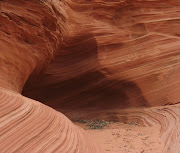 The lyrics to "I Feel Pretty" will not grace any pristine environmental areas on the planet. The glaciers are melting faster than scientists predicted. The Inuits are being displaced to higher ground as their homes go under along with the polar bears, seals and walruses. China is trying out stop driving for a day to cut down on the runaway pollution browning the skies and frying the air in Beijing. America has a major metropolitan city with a million plus people down to its last three months supply of water in Atlanta with Lake Lanier drying up. Canada is scratching its head over thousands of fish that died and decomposed in the river after officials waited to report the mess - during separate events twice.
The lyrics to "I Feel Pretty" will not grace any pristine environmental areas on the planet. The glaciers are melting faster than scientists predicted. The Inuits are being displaced to higher ground as their homes go under along with the polar bears, seals and walruses. China is trying out stop driving for a day to cut down on the runaway pollution browning the skies and frying the air in Beijing. America has a major metropolitan city with a million plus people down to its last three months supply of water in Atlanta with Lake Lanier drying up. Canada is scratching its head over thousands of fish that died and decomposed in the river after officials waited to report the mess - during separate events twice.China's leader Hu Jianto is declaring that China will rebalance its economy to reflect the need to stop Global Warming and its status as one of the top three worst polluters. Of course, this is a week of internal Chinese politics as the Communist Party Conference. They want those tourist dollars and the prestige of hosting the 2008 Olympics. After that, who knows.
President Hu Jintao promised to clean up China's polluted environment, pursue balanced trade and create global Chinese companies but announced no new reform initiatives Monday as he outlined the Communist Party's economic goals.Certain factions in Korea are in a state of denial. Cough, ...
Now the site of one of the world's worst genocides, the Darfur region of western Sudan was a plentiful neighborhood until twenty years ago. Blessed with fertile land, black farmers welcomed Arab shepherds and they shared water. But rising temperatures in the Indian Ocean affected the monsoons and rainfall in the region fell by about 40 percent over the past two decades. As the soil dried up, the farmers and shepherds began to battle for the remaining green lands. With the resources woes compounded by religious and racial conflicts, Darfur has turned into a killing field with 200,000 dead since 2003.With the glaciers of the equatorial Andes Mountains in Peru melting at a rapid pace, Peruvians face a serious threat to their survival. Without the glacier water that supplies 10 to 20 percent of the lowland water -- 40 percent during the dry season -- Peru's Pacific coast, home to 70 percent of the nation's population, could turn into desert.
Today is Blog Action Day. take action tell somebody the Earth is dying and we must stop pollution. Recycle, Reduce and Reuse! Sign up at World Changing for news alerts. Get involved. Read.










No comments:
Post a Comment